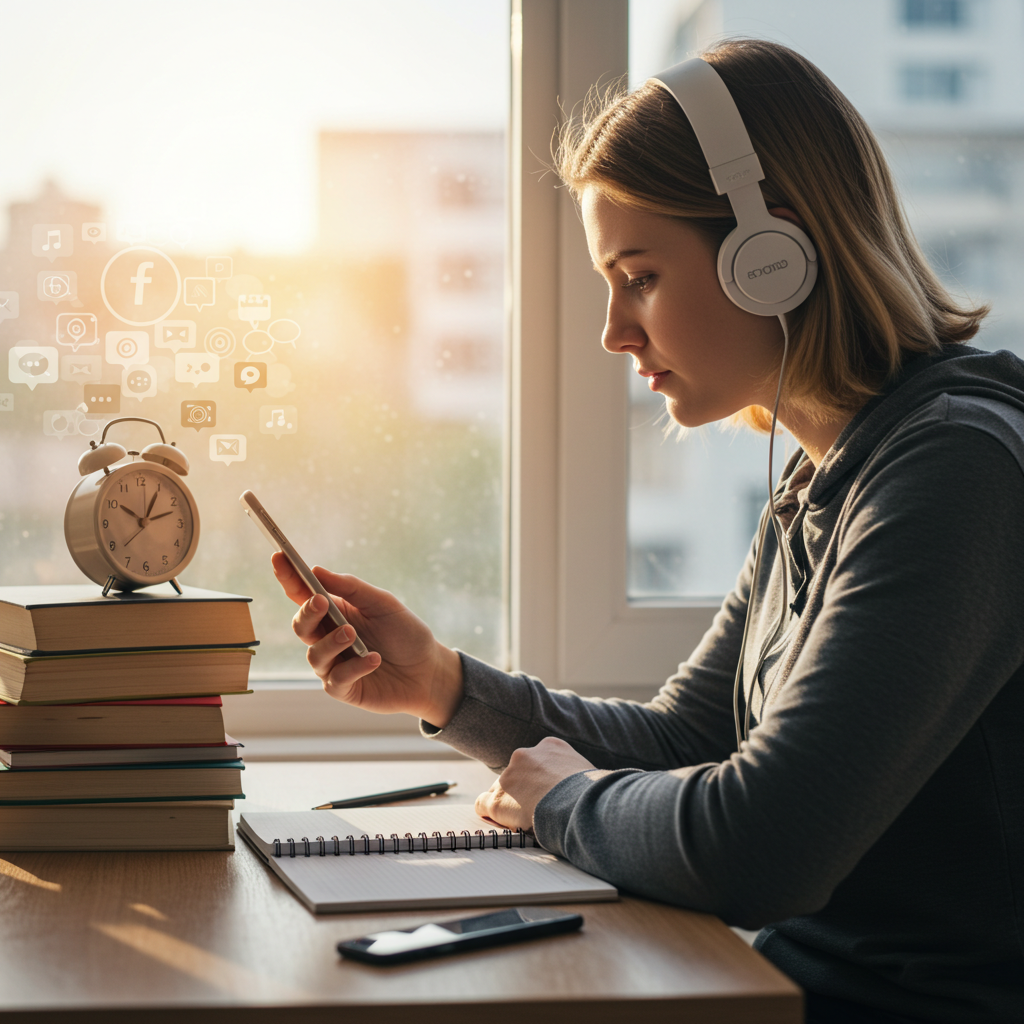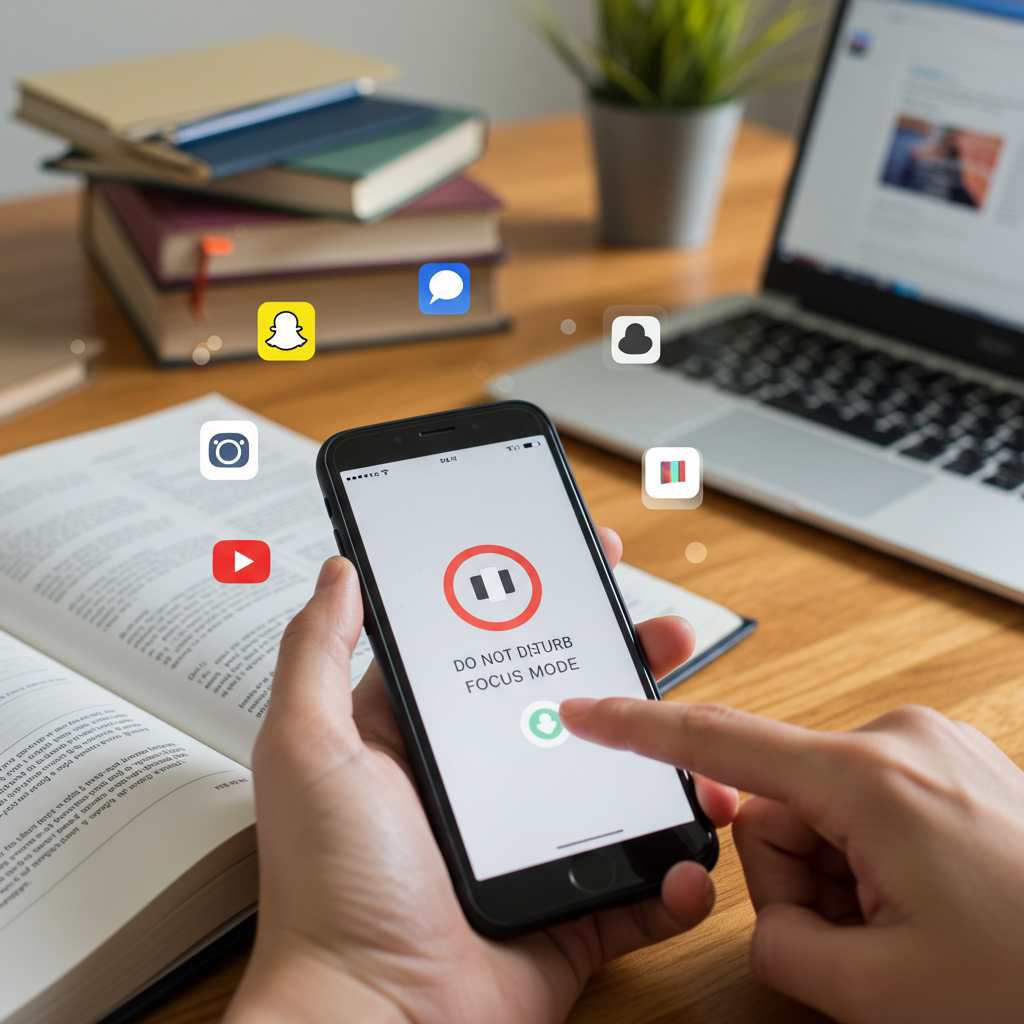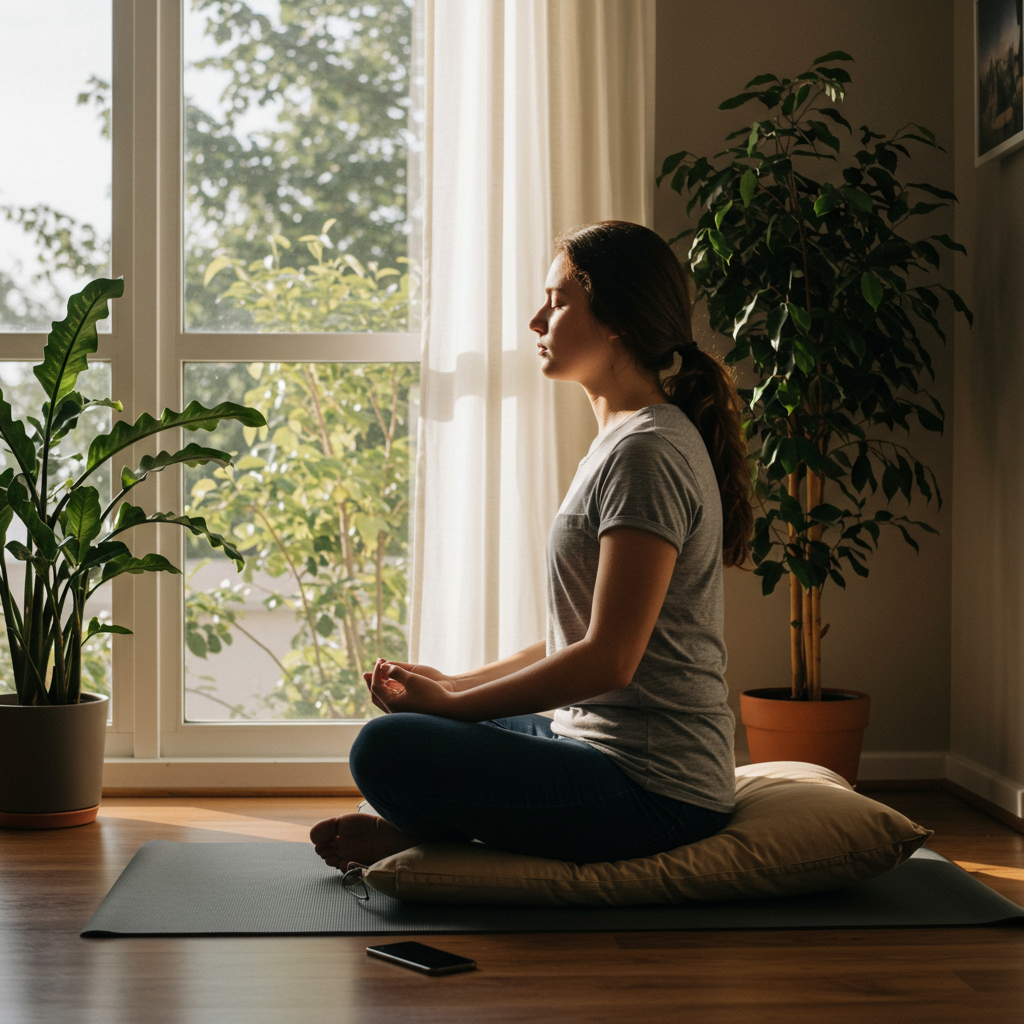
How to Reduce Screen Time and Stay Focused as a Student
In today’s modern world, students spend a large part of their day in front of screens whether it’s a mobile phone, a laptop, a tablet, or even a television. From attending online classes and doing homework to scrolling through social media or watching YouTube videos, screen time has quietly become a daily habit for most students.
But here’s the problem when screen time becomes too much, it starts affecting your focus, health, and study habits. You may have noticed this yourself: feeling tired all the time, getting distracted easily, or struggling to concentrate during study hours. These are signs that your brain and body might be overwhelmed by screen overuse.
The good news is, you don’t have to completely give up technology to fix this. With just a few smart changes to your routine, you can reduce your screen time, feel more focused, and improve your daily performance both in your studies and your personal life.
In this guide, you’ll find simple, practical tips made especially for students. These ideas will help you use technology wisely, stay focused, and live a more balanced life.
1. Set Specific Screen Time Limits

One of the best ways to take back control of your time is by setting clear limits on how long you use screens each day. It’s very easy to lose track of time when you’re watching one video after another or endlessly scrolling through social media. What feels like “just 10 minutes” can quickly turn into an hour or more and that’s time you could have used to rest, study, or do something meaningful.
So, the first step is to become more aware of your screen habits and make a few small changes to manage them better.
Here’s how you can do it:
- Track Your Screen Usage: Use built-in apps like Digital Wellbeing on Android phones or Screen Time on iPhones. These tools show you how much time you spend on different apps each day. Just seeing the numbers can be eye-opening.
- Set Daily Limits for Non-Essential Apps: Once you know which apps take up most of your time (like Instagram, YouTube, or games), you can set daily time limits for them. For example, allow yourself only 30 minutes a day for social media.
- Try the Pomodoro Technique: This is a simple study method where you focus on your work for 25 minutes, then take a 5-minute break. After four rounds, take a longer break. You can use this method to stay focused during study time and also take healthy, screen-free breaks in between.
Setting screen time limits isn’t about cutting out all fun it’s about making sure your screen use doesn’t take away from your focus, learning, or mental peace.
2. Create a Study-Only Space

Where you study matters just as much as how you study. If you try to do your homework in the same place where you watch movies, play games, or relax, your brain can get confused. It’s hard to stay focused when your environment is full of distractions or feels too “comfortable.”
That’s why creating a separate space just for studying can make a big difference. When your brain starts to associate a specific spot with learning and focus, it becomes easier to concentrate and get things done.
Here are some simple ways to set up your focus zone:
- Keep It Clean and Clutter-Free: Make sure your study table isn’t crowded with random stuff. Only keep things you actually need for studying like your books, pens, and maybe your laptop (if required for classwork). A clean space helps you stay mentally clear.
- Use a Simple Desk Lamp and a Notebook: Good lighting helps keep your energy up while you work. Writing things down in a notebook also reduces screen time and improves memory.
- Turn Off Distractions: Before you sit down to study, silence your phone or put it on Do Not Disturb mode. Turn off notifications from apps that aren’t related to schoolwork. Even small distractions can break your focus and waste your time.
If you can’t have a separate room, that’s okay. Even choosing one corner of a room and using it only for studying can train your mind to switch into “focus mode” when you sit there.
3. Take Breaks Without Screens

When you take a break from studying, it’s very tempting to reach for your phone, scroll through social media, or watch a few videos. But the truth is, this isn’t a real break for your brain. Even though you’re not studying, your mind is still working hard to process the constant stream of information from your screen.
What your brain really needs is a chance to rest, refresh, and reset and that can only happen when you step away from screens.
Here are some better ways to take screen-free breaks:
- Stretch or Do Light Exercise: Stand up, stretch your arms, roll your shoulders, or do a few jumping jacks. Moving your body helps wake up your mind and keeps you from feeling tired or stiff after sitting for long periods.
- Hydrate and Snack Smartly: Use your break to drink a glass of water or enjoy a healthy snack. Doing this away from your screen gives your eyes and mind a true pause.
- Get Some Fresh Air: If possible, go outside even for just five minutes. A short walk, sitting on the balcony, or looking at nature can calm your mind and improve your mood.
These small habits might seem simple, but they make a big difference in how focused and energetic you feel when you return to your studies. The key is to give your brain the kind of rest it truly needs not just more screen time in a different form.
4. Use Technology the Smart Way
Let’s be honest completely avoiding screens isn’t possible for most students. And that’s okay. The important thing is not how much screen time you have, but how you use that time. There’s a big difference between watching random videos for hours and using your device to learn something useful or stay organized.
Instead of cutting out technology completely, try using it in a way that actually helps you grow, learn, and focus.
Here’s how you can use screens more wisely:
- Try Learning Apps: Apps like Khan Academy, Clapslearn, and Notion can help you stay on top of your studies. Whether it’s understanding math concepts or organizing your study notes, these tools are made to support your learning journey.
- Choose Educational Content: If you’re watching YouTube, go for educational channels that explain topics from school or teach interesting skills. For example, science experiments, history lessons, or English grammar tips can be both fun and informative.
- Use Focus Tools: Apps like Forest or Study Bunny are designed to help you stay focused by reducing distractions. Forest, for example, rewards you with a growing tree every time you stay away from your phone during study sessions. It turns focus into a fun challenge.
In short, technology isn’t your enemy it’s a tool. When you use it wisely, it can become your best friend in learning and self-improvement.
5. Turn Off Notifications

Have you ever been deep into your studies, and suddenly your phone buzzes with a message or a social media alert? Even if you don’t check it right away, your mind gets distracted. You start thinking about who messaged you or what that notification was about and just like that, your focus is gone.
These small interruptions might seem harmless, but they add up. Each time your attention breaks, it takes time and effort to get back into study mode. That’s why turning off unnecessary notifications is one of the easiest and most effective ways to stay focused.
Here’s how you can do it:
- Try Focus Mode: Many phones now have a special “Focus Mode” that lets you choose which apps can work during study time. Everything else is temporarily paused.
- Mute Social Media Apps: Turn off notifications from apps like Instagram, Snapchat, or YouTube at least while you’re doing homework or attending online classes. You can always check them later during free time.
Your phone is a powerful tool but it doesn’t have to control your time. By taking charge of your notifications, you create a calm and distraction-free space where your brain can concentrate better and learn faster.
6. Replace Screen Time with Productive Hobbies
Whenever we feel bored or have nothing to do, our first instinct is often to pick up the phone and scroll. It happens without even thinking. But if you want to reduce screen time, one of the smartest things you can do is replace that habit with something more meaningful and even enjoyable.
Hobbies aren’t just for fun. They help you relax, improve your skills, and give your brain a break from screens. Plus, they add balance to your day and keep you engaged in real-world experiences.
Here are some great screen-free hobbies to try:
- Drawing, Painting, or Journaling: These creative hobbies let you express yourself while calming your mind. Whether it’s doodling, writing your thoughts, or painting with colors, they help you feel refreshed.
- Play a Musical Instrument: Learning to play something like a guitar, keyboard, or even a basic flute can be both fun and fulfilling. It improves your concentration and gives your mind something positive to focus on.
- Read Physical Books or Magazines: There’s something peaceful about reading a real book without backlight or pop-up ads. Choose topics you enjoy stories, science, adventure, or biographies.
- Try Gardening or Taking Care of Plants: Being around nature helps reduce stress. Watering plants, planting seeds, or simply spending time outdoors can refresh your mood and reconnect you with the real world.
You don’t need to be perfect at any of these hobbies. The goal is to enjoy the process and keep your hands and mind busy with something that doesn’t involve a screen.
7. Practice Mindfulness and Meditation

Reducing screen time not only helps you focus better it also makes you feel calmer inside. When you spend too much time on your phone or computer, your mind can start to feel restless, anxious, or overwhelmed. That’s where mindfulness and meditation come in.
Mindfulness is about being present in the moment fully aware of what you’re doing and how you’re feeling. It helps clear your thoughts, calm your mind, and train your brain to concentrate better. You don’t need a special room, long sessions, or deep knowledge. Just a few quiet minutes can make a big difference.
Simple ways to practice mindfulness:
- Deep Breathing: Sit comfortably, close your eyes, and take slow, deep breaths. Inhale through your nose, hold for a second, and exhale through your mouth. Do this for 5 minutes and notice how your body relaxes.
- Silent Observation: Sit quietly and pay attention to what’s around you the sounds, the smells, the feel of your chair, or the breeze through a window. Just noticing these things without judgment can calm your thoughts.
- Use Gentle Guidance Apps (If Needed): Apps like Headspace or Insight Timer offer short guided meditations and calming music. These apps require minimal screen use and can help beginners start the habit.
Practicing mindfulness daily even for a few minutes can boost your memory, reduce stress, and help you stay focused during your studies. It’s like giving your mind a peaceful reset button.
8. Limit Screen Use Before Bedtime
Many students use their phones or laptops right before sleeping whether it’s checking messages, watching videos, or scrolling through social media. But this late-night screen time can seriously affect the quality of your sleep.
The blue light from screens sends a signal to your brain that it’s still daytime, even when it’s late at night. This confuses your body and delays the release of melatonin a hormone that helps you sleep. As a result, you may struggle to fall asleep, feel restless at night, and wake up tired in the morning.
Good sleep is important for your memory, mood, and ability to focus the next day. That’s why building healthy screen habits before bedtime can help you feel more refreshed and alert.
Here are some relaxing bedtime tips:
- Avoid Screens 30–60 Minutes Before Sleeping: Put away your phone, turn off the TV, and shut down your laptop at least half an hour before bed. Let your mind slowly wind down.
- Read a Physical Book: Instead of scrolling through social media, read a printed book or magazine. Choose something light and calming to help your brain relax.
- Create a Peaceful Sleep Environment: Use a warm nightlight, dim your room lights, or play soft background music to create a calming mood. Avoid bright lights or loud noise.
By giving your brain a break from screens before sleep, you’ll fall asleep faster and wake up feeling more focused and ready to take on the day.
9. Set Clear Daily Routines
One of the best ways to reduce screen time and stay focused is by creating a structured daily routine. When your day has a clear plan, you’re less likely to waste time on your phone or get distracted by random activities. A good routine helps you stay on track, get more done, and still find time to relax.
Think of your routine as a roadmap. It shows your brain when it’s time to study, when it’s time to rest, and when it’s okay to have fun. Over time, your body and mind will get used to the pattern, and it’ll become easier to stay away from screens when you don’t need them.
Here’s a sample routine to follow or customize:
| Time | Activity |
|---|---|
| 7:00 AM | Wake up and do light stretching |
| 8:00 AM | Study or attend online class |
| 12:00 PM | Lunch and break (no screens) |
| 2:00 PM | Homework or revision time |
| 5:00 PM | Hobby time or go outdoors |
| 8:30 PM | Light reading or family conversation |
| 10:00 PM | Sleep (no screen before bedtime) |
Even small routines can make a big difference. You don’t have to follow a strict timetable just having a basic structure to your day reduces the chances of endless scrolling or mindless screen use.
Start with small changes, like setting regular study hours and choosing one screen-free activity in the evening. Soon, you’ll notice you’re more focused, less distracted, and in better control of your time.
10. Talk to Family and Friends

Reducing screen time doesn’t have to be something you do all alone. In fact, it’s much easier and more enjoyable when the people around you understand and support your goal. Let your family and friends know that you’re trying to spend less time on screens so you can focus better, stay healthy, and feel more present in real life.
When your loved ones know what you’re working on, they can help you stay on track. They might even decide to join you in doing more screen-free activities, which can make the whole process feel fun and less like a “rule.”
Here are some simple ways to connect without screens:
- Play Board Games or Card Games with Family: These games are a great way to bond, laugh, and enjoy quality time together without anyone checking their phones.
- Go for a Walk with a Friend: Instead of texting or chatting online, invite a friend to take a short walk around your neighborhood. It’s a simple way to catch up, get fresh air, and take a break from screens.
- Study with a Group (Offline): If possible, plan a small study session at someone’s home or a library. Studying in person helps reduce screen use and can make learning more interactive and productive.
Spending time with real people in real situations builds stronger relationships and creates better memories than anything you’ll find on a screen. By involving your family and friends, reducing screen time becomes a shared effort something that brings you closer instead of making you feel left out.
Also Read:
Final Thoughts
In today’s world, completely avoiding screens isn’t realistic and it’s not necessary. The goal isn’t to cut out technology from your life, but to use it in a smarter and more balanced way. As a student, your time, energy, and attention are extremely valuable. Wasting them on endless scrolling or distractions can slowly take a toll on your focus, health, and success.
By setting simple screen time limits, creating a focused study space, taking real breaks, and enjoying more offline activities, you can build a daily routine that supports your learning and personal growth. These habits may seem small at first, but over time, they can help you stay more focused, feel less stressed, and perform better in school and in life.
Thanks For Visiting primehighlights.com



